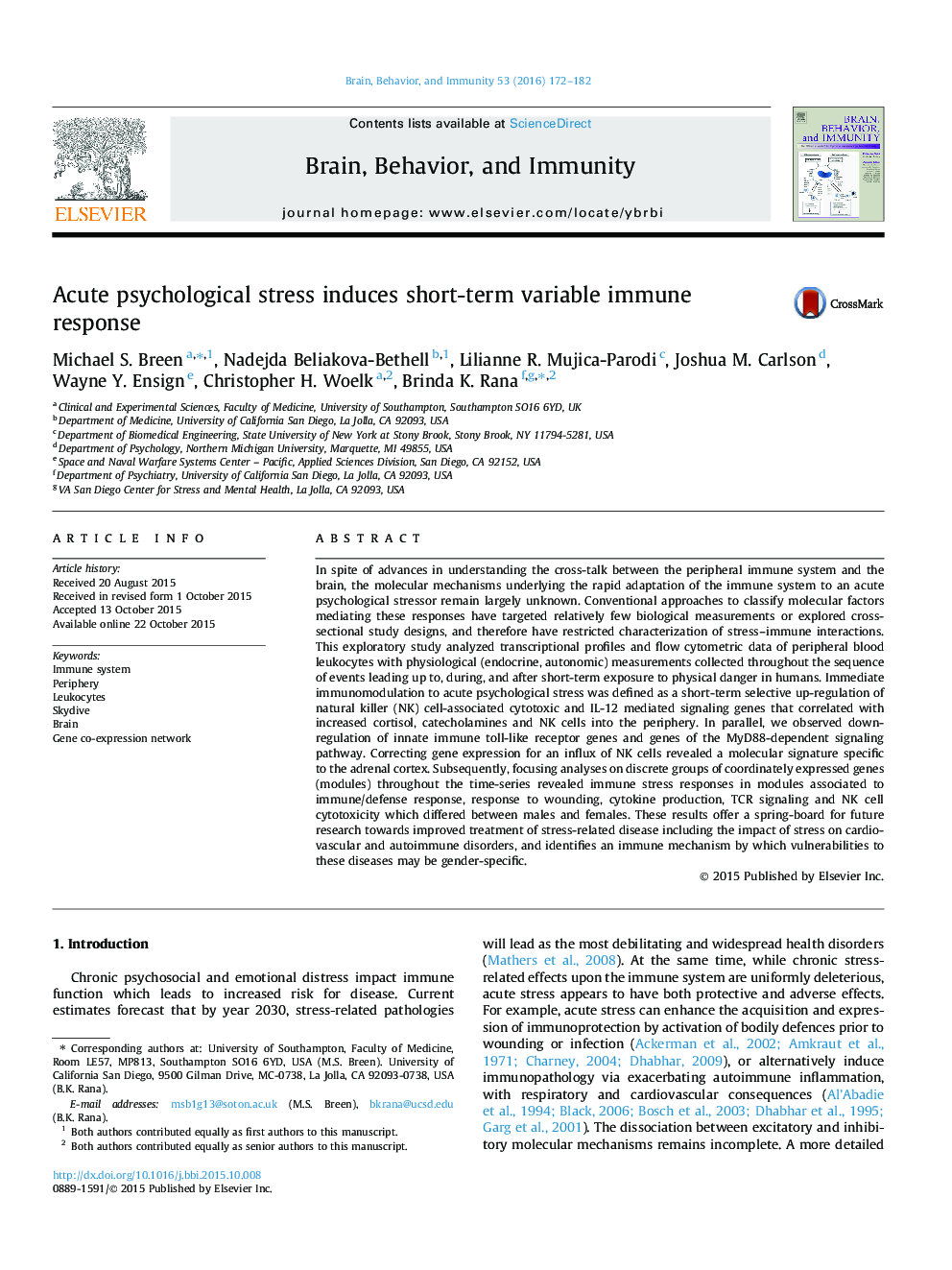| Article ID | Journal | Published Year | Pages | File Type |
|---|---|---|---|---|
| 922089 | Brain, Behavior, and Immunity | 2016 | 11 Pages |
•We modeled acute psychological stress induced by first-time tandem skydive.•Blood transcriptome, physiological and flow-cytometry measurements were collected.•Early immunomodulation was manifested by selective up-regulation of NK-cell genes.•Cell-type correction revealed a molecular signature specific to the adrenal cortex.•Hundreds of co-regulated genes demonstrate gender specific immune response profiles.
In spite of advances in understanding the cross-talk between the peripheral immune system and the brain, the molecular mechanisms underlying the rapid adaptation of the immune system to an acute psychological stressor remain largely unknown. Conventional approaches to classify molecular factors mediating these responses have targeted relatively few biological measurements or explored cross-sectional study designs, and therefore have restricted characterization of stress–immune interactions. This exploratory study analyzed transcriptional profiles and flow cytometric data of peripheral blood leukocytes with physiological (endocrine, autonomic) measurements collected throughout the sequence of events leading up to, during, and after short-term exposure to physical danger in humans. Immediate immunomodulation to acute psychological stress was defined as a short-term selective up-regulation of natural killer (NK) cell-associated cytotoxic and IL-12 mediated signaling genes that correlated with increased cortisol, catecholamines and NK cells into the periphery. In parallel, we observed down-regulation of innate immune toll-like receptor genes and genes of the MyD88-dependent signaling pathway. Correcting gene expression for an influx of NK cells revealed a molecular signature specific to the adrenal cortex. Subsequently, focusing analyses on discrete groups of coordinately expressed genes (modules) throughout the time-series revealed immune stress responses in modules associated to immune/defense response, response to wounding, cytokine production, TCR signaling and NK cell cytotoxicity which differed between males and females. These results offer a spring-board for future research towards improved treatment of stress-related disease including the impact of stress on cardiovascular and autoimmune disorders, and identifies an immune mechanism by which vulnerabilities to these diseases may be gender-specific.
